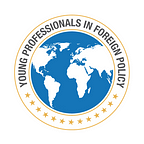Taking Another Look: Revising Our Perspective on Turkish Revisionism
By Benjamin P. Beames
Turkey’s President, Recep Tayyip Erdogan, and his Justice and Development Party (AKP) affect the nation’s foreign policy by offering a selective account of the nation’s history. By reviving a consciousness of empire, the Turkish government is effectively masking their foreign policies behind a veneer of revisionism.
During the past decade, under Erdogan and the AKP, Turkey has utilized three political principles: prosperity, piety, and power. Markedly, power plays a central role in Turkish foreign policy’s dominance through the nation’s presence in regional politics. The current administration wants the republic to be seen as a global power. Much of its recent diplomatic flexing aims to grow the nation’s reputation and international prestige. To achieve the administration’s desire for international recognition, Erdogan utilizes the Ottoman Empire’s history to sway public opinion and direct contemporary Turkish history.
In 2017, referendums gave Erdogan unprecedented power over the Turkish judiciary. In the years that followed, the usage of revisionism increased. This newly centralized seat of authority offers a greater ability to rewrite Turkey’s history. Erdogan uses this capability in his favor. One notable example is the reframing of the 1923 Treaty of Lausanne. The treaty determined the Republic of Turkey’s borders as the nation transitioned out of the Ottoman Empire. During a 2016 speech, Erdogan declared that Turkey “cannot act in 2016 with the psychology of 1923,” meaning that it should not accept the confines of those demarcated borders as an unquestionable fact. He also described the treaty as an effort “to make us forget [our] Seljuk and Ottoman past,” a history he will not allow Turks to forget. He pointedly reiterates that drawing the borders of Turkey was done through imposition. The memory of this perceived slight lives on.
To reassert former geographical and cultural prestige, Turkey is diminishing ties with the United States and advancing its presence in Syria, Libya, and recently in the Mediterranean Sea. Some have criticized these actions as a revival of an empire, notably because national maps were redrawn to create the state’s ideal image. However, the memory of the empire is more pronounced in media productions and cultural performances that elicit nostalgia for the Ottoman Empire.
One such production, Resurrection: Ertuğrul, has prompted high praise from the president. The show elevates themes of honor, tradition, and loyalty in a way that is “insular and nationalistic,” complementing Turkey’s contemporary iteration of patriotism. There is also the film Conquest 1453, which depicts the victory of Fatih Sultan Mehmet over the Byzantines in Constantinople. The film portrayed the historical account as a battle between moral destitution and righteousness, highlighting Turkey’s superior morals. Both productions took substantial historical liberties to achieve their desired effects.
The images of Ottoman heroes conquering foreign evils are a powerful political tool. The Turkish scholar Semuhi Sinanoğlu argues that the productions act as both a form of escapism and an essential instrument of “political technology” that buttress the regime. He says these types of media productions are dangerous because they depict an unflawed leader who relies on violence instead of diplomacy to solve issues. These productions are a direct connection between the government’s goals and its citizens. With tens of millions of viewers in countries worldwide, analysts should view them as demonstrations of soft power promoting the state’s policies.
To reinforce images on the screen, the government employs “historical memory,” a type of memory that relies on “backward-looking” policies to tether the present’s narrative to the past. Referencing ambiguous golden eras allows society’s imagination to fill in the gaps between what they see or listen to in the media and political discourse.
These recent uptakes in historical memory have prompted many journalists and foreign policy experts to resurrect the misnomer, “neo-Ottomanism.” The term may seem beneficial upon first read — an expression for Turkish policy that highlights the importance of Ottoman history in contemporary politics — but it has become shorthand for “aggressive,” “pan-Islamist,” and “anti-West” foreign policy decisions that oversimplify Erdogan’s motivations. The term presents a binary relationship between religion and secularism, which researchers often describe as diametric opposites — this is not the case. Through years of reforms, religion and secularity are now symbiotic. Although there may be moments of tension between them, the modern Republic is not a clash between Islam and secular democracy.
The Republic of Turkey’s use of historical memory is not about neo-Ottomanism, empire, or pan-Islamism. It is about pragmatism. Turkey wants to be a regional and global hegemon and it interprets its national history to support this goal. Therefore, policy analysts should be careful not to impose a Western worldview on Turkish politics by reading into its presentation of history. Misreading Turkey’s historical interpretations leads to erroneous assessments. Referencing words like “neo-Ottoman” to account for complex factors impacting Turkish decision-making is imprecise and supports the government’s goal of policy obfuscation. Instead of buying into that account, analysts should understand Turkey’s treatment of history as another tool in the political-instrument toolkit. When confronted with aggressive nationalism, anti-Westernism, and political Islamism, call it what it is. No amount of revisionism changes that.
Turkey is not unique for leveraging history. The President of the United States, Donald Trump, consistently reflects on “making America great again,” without referencing the period of greatness U.S. society should model. His campaign also advocates for a nationalistic education in schools, where “our youth will be taught to love America.” For both presidents, the past should not recognize failure or weakness; it should reflect success. As George Orwell presciently wrote, “who controls the past controls the future.” It seems these presidents took note.
Benjamin Beames is a research associate to the historian-in-residence at a think-tank in New York City. Beames received his M.A. in Middle Eastern Studies from the University of Chicago, where he focused on jurisprudence. He has previously worked on Turkish extradition law as a research assistant.
